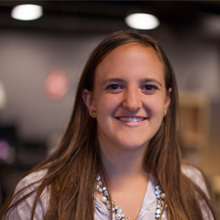A remote rural village in Africa received one cell phone to share. The village matriarch is the keeper of the cell phone, charged with determining who will best use the technology to benefit the village and who is more likely to play games.
After a short time, the men who plant crops were using mobile technology to figure out how many crops to plant to bring to market. The village is now sustainable.
This is just one of the stories shared through Women in Tech Campaign, founded by a group of professional women to help expand the definition beyond traditional technology skills.
Women in Tech Campaign's Emily Rasowsky says:
Sharing how technology is used in developing countries reframes everything in the tech space, broadening the horizon of what technology means and inspiring someone to make one small change or shift, like providing that cell phone to the village. These micro-experiences tell a story. It's not only about what is the next best app. On a bigger level, we can use the same technique with an organization, sharing work and discussing what creates change. Technology is anything and everything that uses tech tools to improve lives and communities.
Technology can be applied not only to improve day to day lives but also to give a voice to those who are being oppressed throughout the world, using the tools of social and digital media to expand the conversation.
"International development professionals deal with this type of question every day. How can we leverage different types of technology? Information is power," Rasowsky shares. "Sometimes, it's about solving a problem of providing healthcare information, access to food, or how to leverage micro-financing. This can be beyond what we typically think of as technology."
Although we tend to think of tech in terms of the latest app, technology can mean something as old school as the radio. The impact on the world is huge, along the scale of the Industrial Revolution. Access to technology may seem easy in a world of smartphones and WiFi at Starbucks but can be more complicated in developing countries.
Rasowsky adds:
In countries such as Brazil, where there's a high disparity of income, technology is creating a bigger divide than before between the haves, who may have the latest smartphone, and the have nots. Half the country looks like a village that needs to get crops in the right place, while the other half looks like the Silicon Valley.
It's about how we can leverage the right people and the right situation. It's not one size fits all. We can learn from folks in Kenya and Nigeria to inform what we need to do in the U.S. and vice versa. It's a cyclical thing. At Women in Tech Campaign, we curate stories about women from all different backgrounds and segments of the tech space, not only female coders or engineers. We want to be more inclusive.
For more information and to access the stories of women in technology, visit Women in Tech Campaign.

